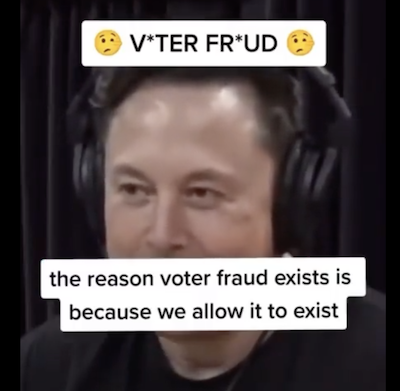On Tuesday, former President Donald Trump signed an executive order directing federal resources to support states in ensuring “free, fair, and honest elections.” The order underscores the importance of elections that are “unmarred by fraud, errors, or suspicion,” stating that the right of American citizens to have their votes “properly counted and tabulated, without illegal dilution,” is essential to determining the rightful winner of an election.
The order puts it plainly: “Free, fair, and honest elections—ones that aren’t messed up by fraud, mistakes, or anything shady—are a big deal. They’re the backbone of keeping our constitutional Republic strong.” It goes on to say, “The right of American citizens to have their votes properly counted and tabulated, without illegal dilution, is vital to determining the rightful winner of an election.” Trump’s point is clear: every American deserves to know their vote counts, and nothing sketchy should get in the way.
Federal vs. State Responsibilities in Elections
The executive order acknowledges that states hold primary responsibility for administering elections. Under the U.S. Constitution, states set their own election laws, oversee voter registration, and manage the counting of ballots. However, the federal government has a role in ensuring that elections comply with constitutional protections, particularly in cases of alleged discrimination, foreign interference, or systemic fraud.
Trump’s order suggests that the federal government can assist states with election security, combating fraud, and standardizing best practices.
What kind of help? It could be stuff like funding, tech support, or expertise. Maybe federal agencies pitch in with cybersecurity to stop hackers from messing with voting machines. Or they might share tricks to double-check vote counts so nothing slips through the cracks. It’s teamwork—states lead, but the feds back them up to make sure your vote, and everyone else’s, actually matters.
“While election administration is primarily the responsibility of state and local officials, the federal government has a duty to ensure that elections are conducted in a manner that upholds public confidence,” the order states.
Supporters and Critics Weigh In
Supporters of the order argue that federal assistance is necessary to prevent irregularities and improve election security. Trump and his allies have frequently claimed that past elections were tainted by fraudulent activities, although courts have repeatedly rejected many of these claims.
“The American people deserve elections they can trust,” Trump said in a statement following the order. “We cannot allow ballots to be manipulated, harvested, or counted in secret rooms without oversight. Every legal vote must count, and every illegal vote must be removed.“
‼️‼️ Elon Musk: “Unless you have paper ballots with voter ID checks you cannot have fair elections in the United States”‼️‼️
— 🌋🌋 Deep₿lueCrypto 🌋🌋 (@DeepBlueCrypto) March 25, 2025
Elon Musk’s assertion that paper ballots are essential for a fair election in the United States stems from concerns about the vulnerabilities inherent in… pic.twitter.com/oMhPU6oYqZ
Opponents, however, see the move as unnecessary federal overreach and a pretext for casting doubt on election results. Critics argue that states already have robust systems in place and that allegations of widespread fraud have been debunked. “This is yet another attempt to sow distrust in our democratic process,” said Senator Amy Klobuchar (D-MN). “State and local election officials—both Republican and Democrat—have assured the public that our elections are secure. The last thing we need is the federal government interfering in what is already a well-run system.“
Election experts warn that federal involvement in state-run elections is a delicate matter, as past efforts to standardize processes have sparked partisan disputes. While the executive order does not impose new federal regulations, it signals an ongoing push to influence how elections are conducted at the state level—a debate that is unlikely to subside as future elections approach.
As this executive order unfolds, it is expected to face numerous legal challenges and spark extensive debate over the balance of power between federal and state authorities in managing elections.
